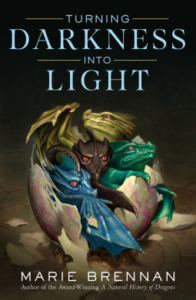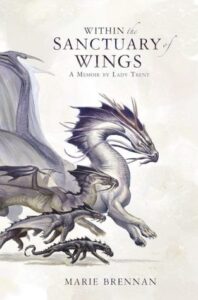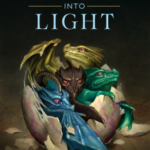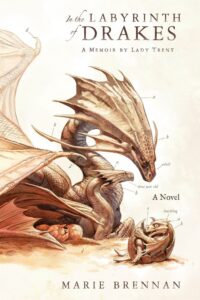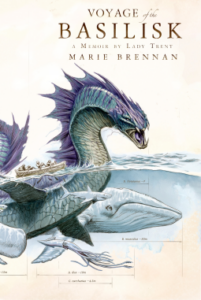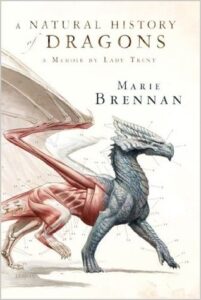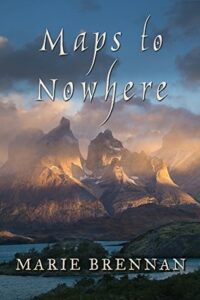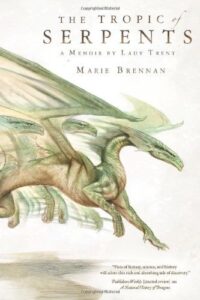 Tropic of Serpents, Marie Brennan
Tropic of Serpents, Marie Brennan
When I was first reading the series, this is the book that really got me hooked. Isabella’s weathered the loss of her husband, and has bounced back by throwing herself into further research, planning to discover more about dragons. She and Thomas Wilker — and the new character Natalie Oscott — are heading to Bayembe, a stark contrast from their time in cold Vsytrana. Over the course of this book they chase dragons across the savannah and through a swamp. It’s hard to say whether the most interesting aspects of these books are the dragons, and the portrayal of Isabella’s scientific endeavours surrounding them, or the cultures Isabella comes into contact with… or the political situations she manages to muddy. Really, I suppose, it’s the fact that there is so much there, and that it portrays scientific endeavours as embedded into everything else.
It’s obviously intentional that these books are very much like a Victorian explorer reporting back on native societies around the world, but it can be a bit discomforting at times; Isabella is being a bit of a tourist in that way, for all that she tries to be respectful of the cultures she meets. There’s condescension in the way she agrees to go along with a rite or accept a taboo just to further her eventual goal, and while I think Brennan tries to be respectful of the history, and have Isabella point up the issues in hindsight, it can still be rather uncomfortably too much like an endorsement of that kind of exploration and colonialism. These books repeatedly engage with that, sometimes with success, and sometimes… well, sometimes it doesn’t quite work for me, anyway.
That said, I’m not sure you can make an analogue of this era of exploration without also having to deal with the racial and colonial issues that came with it. Any character in this situation is bound to raise this kind of discomfort, and it would be very difficult to ameliorate it entirely, I think. History is full of problematic attitudes, and these books address a lot of them, like the struggle for women and working-class men to be treated as scientists. It succeeds in many ways!
Whatever else it is, it is definitely entertaining, and it’s fascinating to see the way Brennan has woven dragons into the history and the fabric of the societies Isabella comes into contact with, in greater and lesser ways. I enjoy Natalie as a character a lot — she’s no less driven than Isabella to break the mould, though her interests are different — and this is also the book in which I fell for Tom Wilker as a character. I adore the relationship between Tom and Isabella, and the way they slowly learn to respect and rely on each other.
This book contains one of the best examples of Isabella’s “deranged practicality”, and I refuse to spoil it for anyone who hasn’t read the book yet, but it’s a pretty amazing demonstration of how nuts she is and why she is awesome.
Rating: 4/5
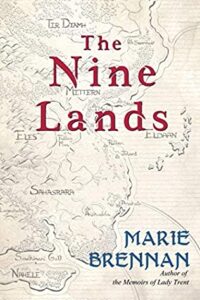 The Nine Lands, Marie Brennan
The Nine Lands, Marie Brennan
